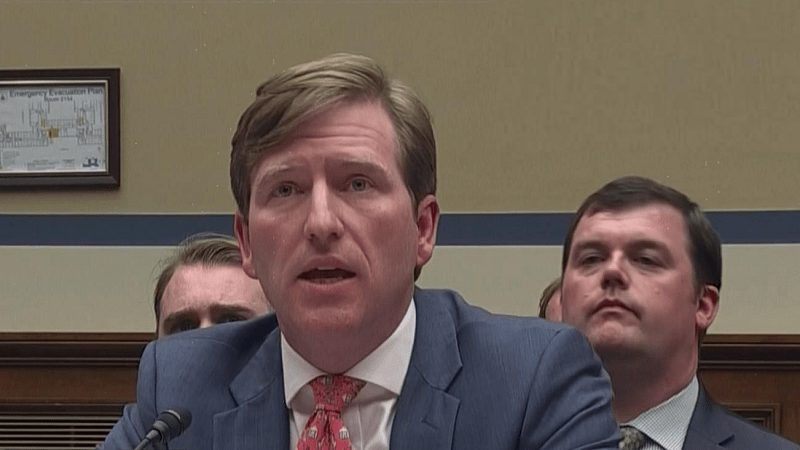
Christopher Krebs, head of the newly minted Cybersecurity and Infrastructure Security Agency (CISA) within the Department of Homeland Security (DHS), offered his vision for the agency’s future, and how component-agency status will allow the organization to reach its full potential, during an event hosted by the Chamber of Commerce on November 16.
“Just because we’ve got this name and we’ve streamlined the organization through a number of steps doesn’t mean that we come in, cyber guns blazing,” said Krebs. “This is more of a groundbreaking than a ribbon cutting.”
Krebs described how the agency has to grapple with organizational work to take the next steps forward.
“I kind of see us as a 14-year startup organization. We have a number of processes that need to be mature,” he said.
With the reorganization effort always seeming to be on the horizon, “there weren’t historical investments made to really give us the business processes that we need. These things all sound boring, but they’re critically important. They matter for the organization, they matter for the morale, they matter for the team we need to build, and they matter for the tools we need to build. Most importantly, they matter for that backbone and that infrastructure we build,” he said.
To reach that goal, the agency will take a fresh look at itself and its goals for the near future.
“We have a single, unifying organizational principle, and that’s ‘defend today, secure tomorrow,’” said Krebs.
“In the next week or two, we’ll be kicking off what I’ve dubbed CISA 2020. That’s the two-year plan, the two-year roadmap that’s going to get this organization from that 14-year-old startup to full operating capability,” he added.
“We are adopting a series of principles–really, more than anything, coalescing into a set of principles–of how we’re going to operate as an organization. First and foremost, we’re going to be transparent. We’re going to be transparent about the threat, and we’re going to be transparent about the things we’re doing together to counter that threat,” he said. “We’re not the intelligence community.”
